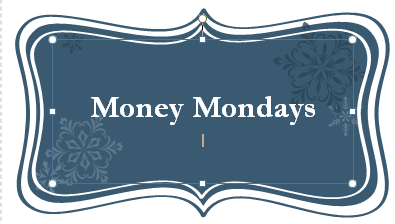Many personal finance bloggers will tell you over and over how important the emergency fund is. I have spoken about building my own Emergency Fund but never really took note of the importance until I really needed to use it.
I lost my job and having no income meant that I needed to find a way to live on a daily basis until I could find an income stream. I was told early on that you needed to have three months of living expenses saved up to count that as an emergency fund.
I decided to aim for at least six months of living expenses and I diligently saved, using my zero based budget to sock away that money every month.
I saved any salary increases, advertising money, gifts and even money that I found in order to build up my fund. It was easy for me to create a sub account in ING, which I labeled Emergency Fund, and then send all that extra money to the account.
It took me a while until I had the money but once I hit the three month target I kept going until I had four months. Then I kept going and eventually I had over six months of living expenses saved up in an interest bearing account.
I kept adding money, though not as aggressively up until the time that I lost my job and I actually had enough to live off for 7 months at the spending levels I was used to while employed.
I could stretch out that money even more by reducing my spending and it will last me about 12 months without me starving to death!!!
The thing to note is that if I had not saved that money and put it in an account that I was not touching under any circumstances then I would not have been able to survive as long as I did before my situation improved.
I cannot wait until I can rebuild my emergency fund and I hope that I never run into a situation where I will have to test how far it can actually stretch.
How is your emergency fund shaping up?




My emergency fund is not nearly as much as I would like it to be. My goal is two months savings by the end of this year with an additional month next year.
Eventually I would like to have 6 months worth of expenses saved but I know that’s going to take a few years before I get to that point.
The key is to just keep plugging away at it and to NEVER touch the money in there. So if you get $30 extra and you put $10 in the EF knowing that you absolutely will NOT touch it that is better than putting the whole $30 in and then borrowing from it later. It might take a few years but then something great might happen in the next few months where you can cut that down. You never know!!!! Good luck.
Having enough money to pay the bills is important. I can remember the last time I didn’t have a nest egg after my income dropped and I was about to loose my job. Not only that but my wife and I just had a new baby. The stress of not having enough money can really have a toll not only on your body but also your marriage and personal relationships.
Not having money in savings that you can use in emergencies affects your financial health and your physical and emotional health as well. I know I was stressed out after not working and I started to have negative feelings towards the people who DID have jobs and kept telling me not to worry. It can be a big threat to your health especially if the stress causes your blood pressure to rise.